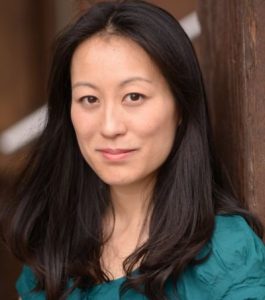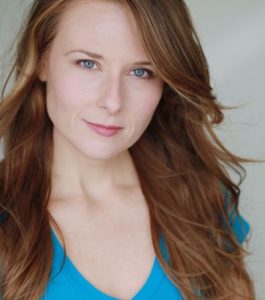Twelfth Night
About the Show
Twelfth Night
Twelfth Night
By William Shakespeare
Adapted by Jennifer Le Blanc
Directed by Lisa A. Tromovitch
Shakespeare’s beloved Rom-Com Twelfth Night is Shakespeare’s quintessential romantic comedy, complete with mistaken identities, love triangles, and those who are lost, finding themselves in love.
If you want a kid-friendly version of Twelfth Night check out this adaptation.
See our Shakespeare 101 section for tips.
Synopsis
Brief Summary
Three plots combine in this rom-com: First, Viola, separated from her twin Sebastian, dresses as a boy and works for the Duke Orsino, whom she falls in love with. Orsino is in love with the Countess Olivia, and sends Viola to court her for him, but Olivia falls for Viola instead. Sebastian arrives, causing a flood of mistaken identity and shenanigans ensue! Second, Sir Andrew is also courting Olivia at the encouragement of her Uncle Sir Toby who wants Sir Andrew around to party with (and pay for the partying). Third, tension between Olivia’s Steward, Malvolio, and the rest of the household leads to a series of practical jokes that go a little too far…
Synopsis
Viola has found herself on the shores of Illyria after a shipwreck separates her and her twin brother, Sebastian, whom she believes has drowned. She disguises herself as a man named Cesario and works as a page for Duke Orsino. Orsino is in love with Countess Olivia, but she refuses to see any suitors because she has dedicated herself to seven years of mourning for her recently deceased brother. Despite his former rejection, Orsino sends his new page Cesario (Viola in disguise) to court Olivia for him. Olivia continues to reject Orsino but is attracted to Cesario. She sends her proud steward, Malvolio, after him with a ring, which is, unknown to Malvolio, a gift from Olivia to Cesario. In the meantime, Viola has fallen in love with Duke Orsino, creating a love triangle: Viola loves Duke Orsino, Duke Orsino loves Olivia, and Olivia loves Viola disguised as Cesario.
Meanwhile, members of Olivia’s household plot to expose the pompous Malvolio, who thinks Olivia has fallen for him. These include Olivia’s uncle, Sir Toby Belch, her Gentlewoman, Maria, and Sir Toby’s friend, Sir Andrew Aguecheek. Sir Andrew also happens to be seeking the hand of Olivia. Together, they use a letter to trick Malvolio into believing Olivia loves him. The letter demands that Malvolio appear in yellow stockings, cross-gartered, and smiling to show his love for Olivia. After he does so, the Countess is horrified and leaves him in Sir Toby’s care, not knowing of the practical joke they are playing on Malvolio. Sir Toby has Malvolio shut up in the dark as a madman.
Viola’s twin brother, Sebastian, has also survived the shipwreck and comes to Illyria with the sailor who rescued him, Antonio. Antonio is a wanted man in Illyria for a successful raid on one of Orsino’s trading ships. Olivia sees Sebastian and believes he’s Cesario and asks him to marry her, and he agrees. Lots of confusion follows around the mistaken identity of Sebastian and Cesario, and exactly who is promised to whom.
https://www.rsc.org.uk/twelfth-night/the-plot
https://www.rsc.org.uk/shakespeare-learning-zone/twelfth-night/story/plot
Director's Notes
Director’s Notes
How did you choose the period of the 1860s for Twelfth Night?
Choice of period is always a crucial decision, as it affects how the audience moves through the story, what parameters are placed on designers, and how the actors need to adapt to etiquette and personal interactions.
There were two avenues of thought that led me to choosing post-civil war America, the 1860s, as the period for this production. One was solely practical: I wanted a small cast show, with lots of doubling, which meant quick costume changes. We’re outside with limited backstage space. The easiest way to make those changes work is to be able to underdress pants (if an actor plays both male and female), so I started with a period when women’s skirts were floor-length. The second avenue of thought was about story: We learn at the beginning of the play that Olivia has lost a father and a brother within one year. A war supports that backstory. American post-civil war era came to mind. That idea took hold immediately as I thought about Sir Toby’s excessive drinking; could he have PTSD? It was a brutal war, with hand-to-hand combat leaving thousands of dead on the field. And Orsino seems to be almost forcing himself to “move on” to marriage and happy thoughts.
Men have long been encouraged to marry and start families when they return from war as another way to put the atrocities they experienced behind them.
To test the idea, I worked through various “problems” in the play, to see whether that choice would help or hinder the story Shakespeare wrote. One issue is that of Viola disguising herself as a man to get a position in Orsino’s court. An Elizabethan audience would immediately understand that Viola could never have asked for a guest room, since a single woman, even if of noble blood, would not have been allowed to stay overnight in a bachelor’s home. To strengthen that choice, I thought Viola could be from the South and not sure of a welcome in a Northern city. To add to her disguise, she takes on a Northern accent, using the character’s Southern accent only when talking to the audience or the trusted sea captain.
A second “problem” to solve involves Malvolio. His supposed affinity for Puritanism would have made him a relished scapegoat for an Elizabethan theater-going audience’s wrath. The Puritans wanted the theaters closed, so no amount of abuse of this character would be considered “going too far” for Shakespeare’s actors or audience. But Shakespeare gives him a humanity that Olivia clearly appreciates. Why is she so fond of him? Shakespeare doesn’t give us lines to clarify the relationship, other than for Olivia to voice tolerance among her staff who come from different backgrounds. What if Malvolio was also from the South and yet stayed loyal to her and her family despite the war? That loyalty would certainly be appreciated, especially by a woman who might have needed his assistance running the estate after both her father and brother were gone.
The setting continued to work as I, and then the actors, joined in discussion of other characters. America was a mix of accents and dialects as people came from all over to “the new world.” Matt Ballin wondered if Feste had been an Irish Volunteer and a musician; he would have seen war. In auditions, I asked actors to experiment with various accents, and French worked well for Valentine as a snooty young courtier.
With actors doubling in multiple roles, having a distinct accent helps the audience keep the characters apart.
Grant Huberty, our sound designer, found music from the period, and I simply loved it. Many of the songs have survived to this day, if only in beginning piano classes.
Once cast, I did more research and discussed the choice with Laura Domingo, our Viola, who is Filipina. I learned that the first Filipinos landed in California in 1587, and more importantly for our purposes, a documented Filipino settlement was situated on the Louisiana coast in 1763. This strengthened the idea of Viola being from the South. Due to doubling, we cannot track ethnicity specifically in a production like this, but it’s nice to know there is historical support for the world we’re creating onstage. Li-Leng Au doubles as Maria and Sebastian. While many of us are aware of Chinese immigrants working on the railroad and in mining, there were also Chinese students studying in America from 1818-1825. Yung Wing, who earned a degree from Yale in 1854, was the first Chinese student to graduate from an American college. I fancied Maria to be the sister to Yung Wing or someone like him, being provided a position by the wealthy family of Countess Olivia while Maria’s brother pursued his studies. Again, this background for the characters doesn’t play directly into the story, but it provides us as actors and director with a shared, cohesive world to inhabit as we build the relationships.
With the accents helping the audience differentiate characters—a practical concern—and the potential tensions supported by a South-North rivalry strengthening the choices the characters make in the text, the post-civil war period supported the production well.
What are some of the difficulties of presenting an Elizabethan story in a more modern setting?
One of the biggest issues is status. While we clearly have status issues in modern society, there are instances where the translation is tricky. Maria is identified as “a gentlewoman” by multiple characters and is considered an appropriate mate for a nobleman, a “Sir.” Her dialogue with Sir Toby is even, not deferential. Yet she serves the countess. In Shakespeare’s day, high ranking families considered it a privilege to place their offspring in the home of a royal. The young courtiers would serve “their betters” but also receive training in fencing, dancing, etc., and an education with access to a personal library and tutors. There is one reference to Maria being introduced as a “chamber-maid,” but it is made by Sir Toby in a scene full of jokes. There is no other evidence that she is actually a maid, of the servant class, and there is much evidence to the contrary.
There are other issues, including the use of weaponry. In the American Civil War, both guns and swords were in use, (though this was the last time, as swords proved no match to the destructive power of guns). Keeping the swordplay is not overly anachronistic. Duels were not fully banned in the US until 1880.
What do you mean by “adapted for a modern audience?”
Shakespeare was not only a writer but a stakeholder in the company that produced his plays. There were no legal protections for copyright. Others would write out his plays (with some degree of success) and make money selling copies. Shakespeare made his money from ticket sales.
With that in mind, his plays are rife with low-brow jokes (fart jokes, sexual innuendo, etc.) that pleased the groundlings, those who bought the cheapest tickets and stood in the yard in front of the stage. The scripts are also laced with literary references only the educated with access to classic texts would appreciate. There was always something for everyone! As a contemporary writer of his day, he references news that an Elizabethan audience member might have heard about that week in the local brothels or read about in a pamphlet. But for us, in 2024… we don’t know the gossip from 1601, so it’s just not funny.
Knowing Shakespeare was an entertainer who worked hard to please all his ticket-buyers, Jenn Le Blanc, our adaptor, deleted passages that an average contemporary audience member would not be able to decipher without books in tow. We changed a few words to current usage. And she moved or reassigned a handful of lines to make the doubling work. We believe Will would appreciate the effort to please his twenty-first century fans with a leaner script. This also allowed us to add music beyond what Shakespeare had already indicated for the character of Feste, without making the show too long. (As of this writing, the performance s coming in well under two and half hours, including a 15-minute intermission!) The accents, music, and costumes together communicate the setting, time, and place.
The history of adapting Shakespeare goes back hundreds of years. His plays suffered rewriting by academics in the 1700s, who “corrected” grammar and spelling, erasing rhythmic and emotional information meant for the actors. In the 1800s, sad endings were made happy again: Romeo and Juliet wake up! Today, a nonprofit called Play On! is commissioning contemporary writers to adapt the scripts to make them more accessible. Directors all over the world have been making changes, both large and small, to the texts for hundreds of years. One could make the argument that this is one of the reasons it’s fun to see different productions of the same play, enjoying a new take on a much-loved story.
No photography or recording devices of any kind allowed.
* Member of Actors Equity Association![]()
Dates and Times
Outdoors at Darcie Kent Vineyards
Shakespeare in the Vineyard
July performances are held outdoors at Darcie Kent Vineyards
7000 Tesla Rd Suite A, Livermore, CA 94550
All performances start at 7:30 pm
Dates
Friday, July 5 (Preview & Family Night)
Saturday, July 6 (Opening in Livermore)
Sunday, July 7
Friday, July 12
Saturday, July 13
Sunday, July 14
Thursday, July 18 (Second Family Night)
Friday, July 19
Saturday, July 20
Sunday, July 21
Friday, July 26
Saturday, July 27
Sunday, July 28 (Closing in Livermore)
To purchase tickets over the phone: call our offices at 925-443-BARD (2273) between the hours of 10:30 am and 5:00 pm Monday-Friday
August performances are held indoors at Danville’s Village Theatre & Art Gallery. Click below for details.
Indoors at The Village Theatre and Art Gallery
The Town of Danville Presents Twelfth Night in partnership with SPARC.
August performances are held indoors
at Danville’s Village Theatre & Art Gallery
233 Front St, Danville, CA 94526
Friday and Saturday performances at 7:30 PM
Sunday matinee performances at 2:00 PM
Dates
Friday, August 9 @ 7:30 PM (Opening in Danville)
Saturday, August 10 @ 7:30 PM
Sunday, August 11 @ 2:00 PM
Friday, August 16 @ 7:30 PM
Saturday, August 17 @ 7:30 PM
Sunday, August 18 @ 2:00 PM
Friday, August 23 @ 7:30 PM
Saturday, August 24 @ 7:30 PM
Sunday, August 25 @ 2:00 PM (Closing in Danville)
To purchase tickets over the phone: call The Village Theatre & Art Gallery box office between the hours of 8:00 am and 5:00 pm Monday-Thursday or 8:00 am and 1:00 pm Fridays at 025-314-3418.
Meet the Cast

Li-Leng Au (Valentine / Maria / Sebastian)
Li-Leng Au trained at Rose Bruford and Physical Theatre at LISPA. Highlights include Arquiem (National Theatre UK), Top Girls (Melbourne Theatre Company), and Great Expectations (San Jose Stage). She was part of the originating cast of the multi-award-winning My Neighbour Totoro for the Royal Shakespeare Company.

Matthew Ballin (Feste / Sea Captain)
Matthew Ballin holds a BFA from UC Santa Barbara and an MFA from The Ohio State University. Matt is the Theater Director of the Irvington Conservatory Theatre and has been teaching drama for Fremont Unified School District since 2001. This is Matt’s 10th production, 4th winery, and 19th year with SPARC.

Arjun Bhatkhande (Officer)
See Production Staff section for bio.

Cassidy Brown (Duke Orsino / Malvolio)*
Cassidy Brown (he/him) is an actor/director/improviser with an MFA from University of Missouri Kansas City. He has performed all over the Bay (Berkeley Rep, Center Rep, Pacific Rep, San Jose Rep…lots of Reps!). His main claim to fame is being in six productions of The 39 Steps in almost all the roles, including director of the 2022 SPARC production. He’s the co-host of the popular comedy and spirituality podcast All the Answers, and he helps corporate leaders learn how to play games! www.getcassidybrown.com

Laura Domingo (Viola)
Laura Domingo (she/her) is an Oakland-based actor and writer, making her SPARC Theater debut! Recent credits include Wolf Play (Shotgun Players), the world premiere of Getting There (New Conservatory Theatre Center), Measure for Measure (Silicon Valley Shakespeare), and Much Ado About Nothing (Plethos Productions).

Ronnie La (Curio)
See Production Staff section for bio.

Gregg Le Blanc (Sir Toby Belch / Antonio / Priest)
Gregg Le Blanc has helped capture SPARC’s magic for years! Recent work includes Much Ado About Nothing (Conrade) and Shakesbeer! (Sir Andrew Aguecheek) at SPARC, Jane Austen’s Persuasion (Captain Wentworth) and Rabbit Hole (Howie) at Ross Valley Players, and Arabian Shakespeare Festival’s A Message. For more photography www.CumulusLight.com, follow @CumulusLight, and try liking fb.com/photogregger!

Elena Wright (Sir Andrew / Olivia)*
Elena Wright (she/they) is a Bay Area actor, educator, and fight/intimacy director. They are thrilled to return after working on Silent Sky last season. She has worked with San Jose Stage, Theatreworks, Marin Shakespeare, California Shakespeare Theatre, Commonwealth Shakespeare, Seattle Shakespeare, SF Playhouse, B Street Theatre, and Capital Stage among others. MFA University of Washington, BS Northeastern University
* Member of Actors Equity Association![]()
Production Team

Lisa A. Tromovitch (Director / Producer)
Lisa A. Tromovitch, Founding Artistic Director, is also a tenured professor in Media X at University of the Pacific. She began her career at The Old Globe Theater and has directed in six states. She is a Backstage West Garland Award and Indy Award winner for her direction of Amadeus at PCPA TheatreFest. Most recently she directed The Winter’s Tale, The Tempest, and her own adaptation of Cyrano de Bergerac for SPARC. Past President, Shakespeare Theatre Association. MFA, Southern Methodist University; BA magna cum laude, Dartmouth College; Phi Beta Kappa.

Jennifer Le Blanc (Adaptor)
Jennifer Le Blanc directed SPARC’s productions of Silent Sky, Sense and Sensibility, Life is a Cabernet, and readings of Kindertransport and Winter’s Passage. She has acted in several SPARC productions including Cyrano de Bergerac and Much Ado About Nothing. Jennifer wrote the adaptation of Jane Austen’s Persuasion produced by SPARC. She is also a teaching artist and received her MFA from the National Theatre Conservatory and her BA in English Literature from U.C. Berkeley. She is an associate artist with SPARC and Prague Shakespeare Company. www.jenniferleblanc.com
Austin Andrade (Technical Director)
Austin Andrade (he/him) works full-time as a structural designer working to restore damaged homes and businesses. This is my first time working with SPARC, but he has performed and worked backstage with Tri-Valley Theatre Company for many years; Oklahoma (2012), Newsies (2022), and Legally Blonde (2024). He also manages the @tri_valley_theatre social media accounts and spends his time playing D&D, woodworking, or creating props & costume pieces to wear at Ren Faire!
Audrey Brooks (Props Master)
Audrey Brooks (she/her), is a Bay Area native who has worked in theater for over a decade. She graduated Magna Cum Laude with a BA in Drama and a focus in Acting from San Francisco State University. She is the Lead Teaching Artist with SPARC and has taught in several Livermore 2nd grade classes with the So Wise So Young program.
Callie Floor (Costume Designer)**
Callie Floor returns after having designed SPARC’s productions Much Ado About Nothing, The Comedy of Errors, Othello, Sense and Sensibility, and Persuasion. Recent credits include Home for Word for Word, Flying Dutchman for West Bay Opera, and currently Don Pasquale for Festival Napa Valley. She has a BFA from the University of Utah and a Higher Diploma in Theater Design from the Slade School of Fine Art, University College London
Grant Huberty (Sound Designer)
Grant Huberty, Associate Artist, is pleased to return for another great Shakespeare in the Vineyard season. In addition to sound design for theaters, schools, and church groups, Grant also designed and installed the in-the-round sound system for the festival when it was at Wente Vineyards.
Gregg Le Blanc (Associate Artist / Promotional Photographer)
Gregg Le Blanc has helped capture SPARC’s magic over the years. You also might have seen him on stage in LSF’s Much Ado About Nothing! Gregg has a Master’s Degree Chemical Engineer from University of California Santa Barbara with a 2nd Year certificate from University of Edinburgh. For more photography follow @CumulusLight, and try liking www.Facebook.com/photogregger!
Evan Lopes (Lighting Designer)
Evan Lopes (he/him) is a lighting designer based in Livermore. He currently designs lights for productions at SPARC Theater and I Can Do That! PAC. He works at VIP Audio Visual Company where he manages AV operations for hotels and conference centers around the Bay Area.
Karen Riley (Scenic Carpenter / Tech Advisor)
Karen Riley has been with SPARC since 2008 working in a variety of technical positions. She spent several years as a student and then a volunteer learning technical theater through the Las Positas Collage Theater Program. She retired from LLNL in 2015 after almost 25 years of service.
Malcolm Rodgers (Stage and Set Designer)
Malcolm Rodgers is an Associate Artist with SPARC and was last seen on-stage as Clown #1 in The 39 Steps, Iago in Othello, and Sir Walter Elliot/Admiral Croft in Persuasion. Recent credits include production design for Michael Che-Shame the Devil on Netflix, Triumph of Love at Shotgun Players, and Native Gardens at Ross Valley Players. He has received three Emmy Awards for scenic and graphic design. As an actor, Malcolm has also performed with Custom Made Theatre, CCCT, Arabian Shakespeare, Napa Valley Shakespeare, and Ross Valley Players. Malcolm studied theater performance at PCPA, and stage design at San Francisco State University. www.bowmanrodgersdesign.com
Lindsey Schmeltzer (Musical Director)
Lindsey Schmeltzer has served as an actor, musical director, and teaching artist throughout the Bay Area. She settled in the Bay Area in 2014 and found a theatre home at SPARC, having performed in the summer festivals and Holiday Readings at Swirl on the Square, and taught the So Wise So Young curriculum in multiple 2nd-grade Livermore classrooms. She has expertise in curriculum design and implementing state and national learning standards.
 ** Denotes a member of IATSE
** Denotes a member of IATSE
Production Staff
Emma Ledesma (Stage Manager)
Emma Ledesma (she/her) is a recent graduate from Saint Mary’s College of California with a BA in both Performance Theatre and Technical Theatre Design. She has contributed as a stage manager, director, costume designer, and actor in numerous college productions. This is her first show with SPARC Theater. Outside of performances, Emma works as a teaching artist.
Arjun Bhatkhande (Assistant Stage Manager)
Arjun Allen Bhatkhande is on track to double-major in Business and Theater at UC Santa Cruz. He interned with SPARC for the 2023 Shakespeare in the Vineyard plays and aided in directing Granada High School’s renditions of The Thirty-Nine Steps and The Outsiders.
Elena Wright (Fight Choreographer)*
See Meet the Cast for bio.
Matthew Ballin (Fight Captain)
See Meet the Cast for bio.
Steven McCloud (Front of House Manager)
Steven McCloud (He/Him/They) received his B.A. in Theatre from SFSU and has worked and performed in Bay Area Theatre for over thirteen years! Please check out Livermore Encore Players next production where he will be directing The Curious Savage in the Fall.
Nicole Blair (Dresser)
Nicole Blair is an Early Childhood and Theater Educator, currently enrolled at Las Positas College. She has previously worked as Stage Right Manager with Tri-Valley Theatre Company on their production of Legally Blonde, and as Props Manager for SPARC’s The 39 Steps.
Ronnie La (Dresser)
Ronnie La (she/her) is an actor, stage manager, and theatermaker native to the Tri-Valley. She’s excited to make her SPARC debut. Favorite acting credits include Legally Blonde (Tri-Valley Theater Company), Once on This Island (Plethos Productions), Heathers, and High Fidelity (Las Positas College).
Isabella Edwards (Sound Board Operator)
Isabella Edwards (she/her) is happy to join SPARC as a sound operations apprentice. A rising junior studying at the University of the Pacific, Isabella has had many years of experience onstage, primarily in regional musicals, and offstage, most recently as Assistant Stage Manager for Pacific Opera Theatre’s Into the Woods.
Additional Staff and Volunteers
Cynthia Preciado – Costume Assistant
Kathryn Lechnery – Volunteer Costume Assistant
Nolan Henry – Electrician
Laura Batti – Graphic Designer
Martie Muldoon – Volunteer Props Assistant
Allyn Saroyan – Volunteer Photographer
Board of Directors & Administrative Staff
Board of Directors
Bryan Balazs, Chair
Laura Batti
Tony Baylis
Apryl Chauhan
Ellen Goold, Secretary
Valerie Jonas
Bob Koelle
Larry Lagin
Steve Lanza, Treasurer
Trish Keer Munro
Mary Sweeney
Lisa A. Tromovitch
Beth Trutner
Administrative Staff
Lisa A Tromovitch, Producing Artistic Director
Lindsey Schmeltzer, Managing Director
Audrey Brooks, Program Manager
Leslie Martinson, Grant Writer
Laura Batti, Metier Marketing Communications, Graphic Design
Michael Wayne Rice, Science@Play Program Director
Stephanie Prentice, Education Associate
Shakespeare 101
O U R S P O N S O R S
Individual

Elizabeth Trutner, Esq.
Festival









